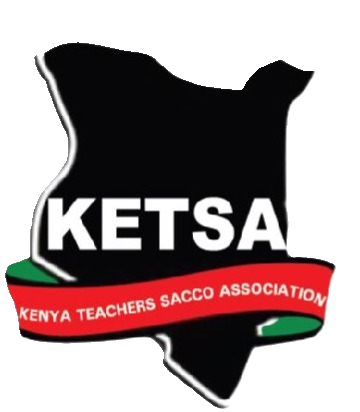Advocacy and why it matters
The Kenyan cooperative movement
stands as a colossal pillar of the nation's socio-economic fabric, empowering
millions through collective savings, access to credit, and shared enterprise. Within
this vibrant ecosystem, Savings and Credit Cooperative Societies (SACCOs) are
particularly prominent, offering crucial financial services. Among the most
significant players are the teachers' SACCOs, large, well-established
institutions serving the nation's educators. While individual teachers' SACCOs
wield considerable influence, their collective strength finds potent expression
through representative bodies, often conceptualised or operating under banners
like the Kenya Teachers' SACCO Association (KETSA). The advocacy role undertaken
by such an association, whether formally constituted as a single entity or
functioning as a collaborative platform, is not merely beneficial for its
constituents; it is profoundly important for the health, direction, and resilience
of the entire Kenyan cooperative movement.
The primary function of a KETSA in advocacy is to act as a unified voice for the specific needs and interests of teachers' SACCOs. These SACCOs operate within a unique context, interfacing directly with the Teachers Service Commission (TSC) for membership contributions and loan deductions, navigating education sector policies, and managing the financial aspirations of a large, geographically dispersed, and professionally distinct membership base. An umbrella association can effectively articulate these specific concerns to key stakeholders – regulators like the SACCO Societies Regulatory Authority (SASRA), the Ministry of Cooperatives and Micro, Small & Medium Enterprises Development, the Central Bank of Kenya, the National Treasury, and Parliament.
In turbulent times, we shape conversations
This advocacy takes multiple forms. Crucially, it involves engaging in policy formulation and legislative processes. When new regulations governing SACCO liquidity, capital adequacy, governance standards (like the Code of Governance for SACCOs), taxation policies, or data protection laws are proposed, a KETSA can provide consolidated, expert feedback informed by the practical realities faced by teachers' SACCOs.
Furthermore, the association plays a vital role in navigating the complex regulatory landscape. SASRA compliance, anti-money laundering requirements, and reporting standards demand significant technical capacity. A KETSA can pool resources to offer guidance, training, and shared services, helping member SACCOs meet these obligations efficiently and effectively. This collective approach to compliance reduces the burden on individual SACCOs and promotes best practices across the sub-sector, enhancing overall stability and member confidence.
Why does this focused advocacy
matter so significantly to the broader Kenyan cooperative movement? Firstly,
teachers' SACCOs represent a substantial portion of the entire movement in
terms of membership, asset base, and loan portfolios. Their health and stability
are intrinsically linked to the perception and reality of the cooperative
sector's overall strength. Effective advocacy that ensures the smooth operation
and regulatory compliance of these large SACCOs bolsters the credibility and
reputation of the entire movement. Failures or major challenges within the
teachers' SACCO sub-sector could have disproportionately negative ripple
effects.
Secondly, the advocacy efforts of
a KETSA often set precedents and create pathways that benefit other types of
cooperatives. When KETSA successfully lobbies for regulatory adjustments or
favourable interpretations of laws, the arguments and frameworks developed can
often be adapted or leveraged by associations representing SACCOs in other
sectors (e.g., agriculture, transport, housing). It pioneers approaches to
engaging with government and regulators, demonstrating the power of collective
action within the cooperative principles – specifically, Cooperation Among
Cooperatives (Principle 6).
Thirdly, KETSA contributes
significantly to the national policy dialogue on financial inclusion and
economic development. The association brings a weighty perspective to
discussions about savings mobilization, affordable credit access, and wealth
creation for a critical segment of the Kenyan workforce. Its input helps shape
national strategies that recognize the unique role SACCOS play, distinct from
traditional banking institutions.
In conclusion, the advocacy
function performed by Kenya Teachers Sacco Association is far more than
internal lobbying. It is a cornerstone of our collective strength, enabling us
to navigate complex regulatory environments, influence policy effectively, and
safeguard the interests of our members. This amplified voice resonates
throughout the Kenyan cooperative movement, enhancing our overall stability,
shaping the regulatory future, bolstering reputation, and ultimately
reinforcing the cooperative model as a vital engine for socio-economic progress
in Kenya. The success of KETSA's advocacy is, in many ways, a barometer for the
health and influence of the cooperative spirit nationwide.
